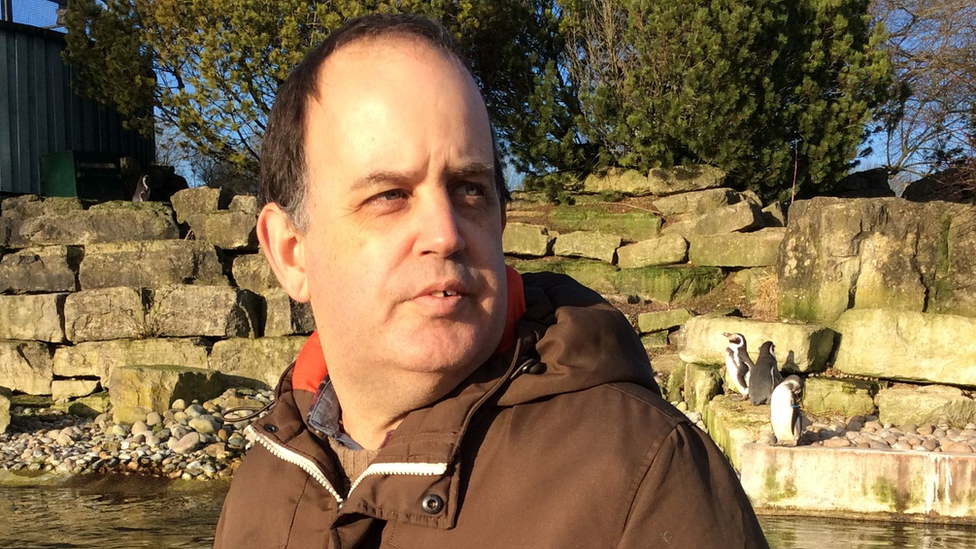'I don't think along the same path as everyone else'
- Published

Geordie says he wants to work in cyber-security
Sixteen-year-old Geordie says his brain works in a different way to most people because of his Asperger's and he hopes this will help him get a job in the cyber-security industry.
But his mum Bev worries about what will happen when he leaves school and tries to get a job.
Geordie, from Fife, thinks his "neurodivergent" approach could eventually be an asset in the cyber-security industry.
He loves computers and says the industry needs people to "think outside the box".
"I like solving puzzles and there is a lot of puzzles in the cyber-security industry," he says.
"I don't think along the same path as everyone else. Most people think along a linear path, which is what education is designed to do."
Geordie's mum says she has been fighting for her son's education all his life.
"He was beating his nursery teachers at chess aged three," she says.
"We realised his thinking was quite different from other children and the way he learned was really different as well."
Bev says parents can guide neurodivergent children and support them but once they go to university or college and on to employment it becomes much more difficult.
"They are kind of cast adrift," she says.

Geordie's mum Bev worries about her son getting a job
A neurotypical person processes information in a way that society expects but the brain of a neurodiverse person functions, learns and processes information in a different way.
Autism, dyslexia, dyspraxia and attention deficit hyperactivity disorder (ADHD) are all examples of neurodiversity.
Employers say that different way of thinking can bring huge benefits to the workplace.
Chris Hughes created Present Pal, inspired by his own challenges with dyslexia.
He says: "In terms of problem-solving, product innovation and creativity, there is a significant amount of outside-the-box thinking that goes on.
"Right now, everyone in Scotland is looking for software developers and people with autism or autism spectrum disorder display a lot of the characteristics that are very well-suited to software development and gaming design.
"So there can be significant benefits in having a neurodiverse team."
Introverted and shy
Geordie's mum says employers need to change the way they advertise jobs and how they interview because neurodiverse people tend to be quite introverted and shy.
She says: "They probably would not apply for a job that said you had to be a good team player or flexible. These are the type of words that terrify neurodiverse people.
"We need to re-educate employers and give it a go. There is absolutely no need for any barrier to be put up for neurodiverse or any disabled person."
The growth in the digital economy means there is a constant need to recruit new talent.
Skills development Scotland says making processes more inclusive and more flexible, with more task-based rather than traditional interviews could do just that.
- Published27 April 2020

- Published16 August 2014
